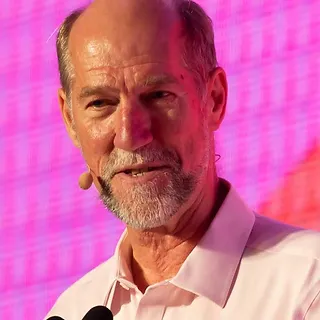FaithInvest on advisory board for World Economic Forum Faith in Action report
- Susie Weldon

- Jan 22, 2024
- 2 min read
The World Economic Forum has released a new report on the impact of faith-based action on the world's multiple crises, with case studies of partnerships between business and religious groups.
The Faith in Action insight report says global leaders cannot afford to ignore the impact of religion and spirituality on today’s interconnected challenges. 'For most of the world today, religion and spirituality continue to inform what a good life is and how to best think about the challenges faced by families, nations and the world,' the report said.
'For global leaders, underestimating the ongoing influence and role of religion in society can lead to missed opportunities for greater positive impact in multi-faith societies and significant oversights in understanding how religion and spirituality interact in the complex societal challenges happening today.'
Growing recognition
FaithInvest Founding President Martin Palmer was a member of the report’s advisory board of global faith leaders. He said there was growing recognition by business and governments of the reach of faith groups.
'Globally more than 80% of people follow a religious or spiritual tradition, and faiths run 50% of schools, a third of universities and 50% of healthcare facilities. They also own up to 8% of the habitable land surface of the planet and hold billions of dollars worth of investments on the global stock markets, so they have assets and influence,' he said.
'The report shows how the business world is exploring partnerships with faith groups in a range of ways – on the environment, health, resilience and technology governance – and looks at how leaders can explore meaningful cooperation with faiths at a time of deepening polarisation and distrust in societies.'
The eight case studies featured in the report include:
Hari Haribol Dairy Products, a food and beverage company based in Mumbai, India, that sells traditional Indian and Hindu groceries internationally, while empowering rural communities in India and reducing greenhouse gas emissions.
TBN Alliance (Transformational Business Network) and its work supporting small and medium faith-based business enterprises and successfully integrating faith and business goals, avoiding the alienation of stakeholders with diverse or no religious affiliations
ACT Alliance, a global ecumenical Christian alliance of 146 organisations, whose members help deliver emergency medical help as well as provide medical services to meet community health needs, and its partnership with Hospitainer, a business that builds and deploys mobile medical buildings around the world
The Global Solidarity Fund, a unique alliance catalysing partnerships for the most vulnerable across the private sector, the development sector and Catholic communities, and its partnership with Unilever on the TRANSFORM Colombia impact accelerator.
Download the report below.









